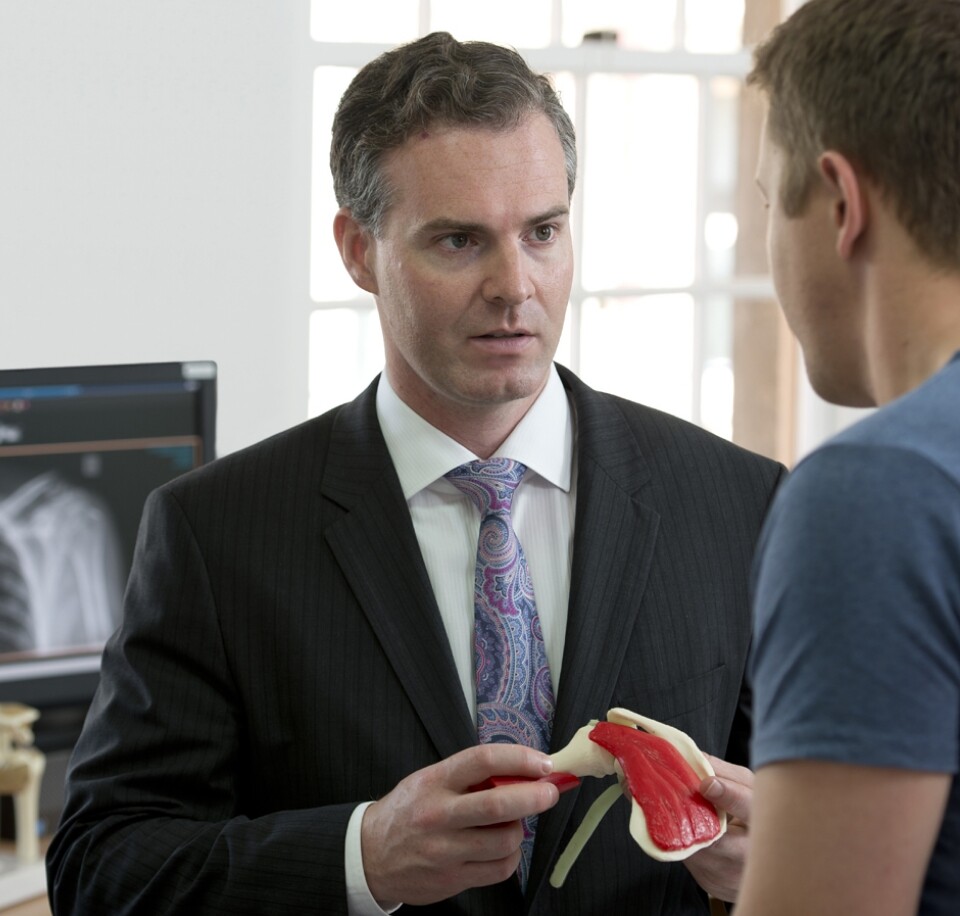Broken or Fractured Shoulder
An upper limb orthopaedic surgeon who will give the best care possible.
Trauma to the shoulder is common with injuries resulting from falls, high-speed car accidents or sports. Most shoulder fractures involve the clavicle (collar bone) or proximal humerus (top of the upper arm bone) and, less commonly, the scapula (shoulder blade), which is more difficult to break and often associated with chest injuries.

Symptoms of Shoulder Fractures
While many fractures are a result of high force impact or stress, bone fractures can also be caused by medical conditions such as osteoporosis.
Broken bones and minor injuries can often be successfully treated without orthopaedic surgery; however, injuries with significant deformity or associated skeletal instability are better treated with surgery to ensure the bones heal in the correct position and reduce the risk of future complications.
In nearly 80 percent of shoulder fractures, the broken bones remain near their anatomic position (non-displaced). Therefore, fracture treatment typically involves immobilisation in a sling or shoulder immobiliser, which will heal within about six weeks. The other 20 percent of shoulder fractures are displaced and may require some type of manipulation or surgery to restore the bone to the correct anatomical position.
Often the rotator cuff muscles are injured or torn at the same time as the fracture, which can further complicate treatment.
Common Fracture Types
There are three common fracture types that can all be treated with either immobilisation or surgery.
Fracture Pain Management & Diagnosis
Your doctor may prescribe oral painkillers or anti-inflammatory medication for mild to moderate fracture pain. Bone fracture diagnosis involves X-rays, CT scans, or MRI scans.
Common Shoulder Fracture Treatments & Reconstruction Procedures
Some fractures are not suitable for repair or fixation, and alternative procedures may be required, such as replacement, excision or fusion.
Most shoulder injuries, whether treated surgically or non-surgically, can affect arm mobility for several weeks or even months. Fracture physical therapy is recommended to decrease stiffness, improve range of motion and help you regain muscle strength.
Fracture Recovery & Healing from Fracture Treatment
When immobilisation is used for broken bone care, fracture healing will typically take up to six weeks. Fracture recovery from surgical fracture treatment can take up to three to four months, depending on the type of surgical procedure. However, the return of the full function of your shoulder may take up to 18 months.
Dr James McLean will inform you of your expected recovery time and will schedule follow-up appointments for you to attend so he can assess your fracture healing process.
For emergency fracture care, call triple zero (000). Keep the fractured area cold to reduce pain and swelling, and if possible, keep the fractured area raised. Do not eat or drink anything until emergency services arrive in case fracture repair surgery is required.

How Dr James McLean can help
Dr James McLean is an orthopaedic fracture specialist in Adelaide and has extensive upper limb experience, including soft tissue and bone injuries.
He will work with you to develop a treatment plan that will have the best possible outcome for your shoulder injury. Dr James McLean will discuss the following during your consultation.
- The type of injury
- Severity of the injury
- Treatment options
- Possible complications
- Whether surgery is necessary
- Length of recovery time after shoulder surgery
- Short and long-term expected outcome
Once you have a referral…
Book your consultation here.

